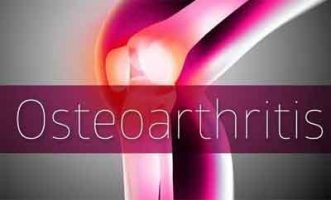- Home
- Editorial
- News
- Practice Guidelines
- Anesthesiology Guidelines
- Cancer Guidelines
- Cardiac Sciences Guidelines
- Critical Care Guidelines
- Dentistry Guidelines
- Dermatology Guidelines
- Diabetes and Endo Guidelines
- Diagnostics Guidelines
- ENT Guidelines
- Featured Practice Guidelines
- Gastroenterology Guidelines
- Geriatrics Guidelines
- Medicine Guidelines
- Nephrology Guidelines
- Neurosciences Guidelines
- Obs and Gynae Guidelines
- Ophthalmology Guidelines
- Orthopaedics Guidelines
- Paediatrics Guidelines
- Psychiatry Guidelines
- Pulmonology Guidelines
- Radiology Guidelines
- Surgery Guidelines
- Urology Guidelines
DMARDs not effective in relieving pain in osteoarthritis

Disease-modifying antirheumatic drugs (DMARDs) do not offer clinically significant pain relief above placebo in osteoarthritis(OA)and results suggest that inflammation may not be a risk factor of OA pain, according to a meta-analysis of randomized controlled trials published in the journal British Society For Rheumatology.
OA is a major cause of pain and disability for which still there are no disease-modifying drug interventions identified. It is a common complex disorder that involves all joint tissues and affects approximately 1 in 5 women and 1 in 10 men aged >60 years. Some researchers believe that synovial inflammation is the primary driving force for OA pain and progression.
Monica S M Persson and her colleagues conducted a systematic review and meta-analysis of randomized controlled trials (RCTs) to compare DMARDs with placebo in participants with symptomatic osteoarthritis(OA).
Conventional and biologic DMARDs are the two major classes of DMARDs used for RA. Conventional DMARDs include drugs such as MTX and HCQ, whereas biologic DMARDs are mAbs and soluble receptors that target protein messenger molecules or cells.
A systematic literature search was conducted which included databases from (Medline, Embase, Allied and Complementary Medicine Database, Web of Science and Cochrane Library), for placebo-controlled RCTs of DMARDs, including biologics, in symptomatic OA. Pain data at treatment peak time point were extracted and combined using a random-effects meta-analysis. Markers of inflammation and adverse events were extracted and reviewed.
Based on the meta-analysis of conventional and biologic DMARDs in OA, including 11 RCTs with over 1200 participants, it was found that
- There was no statistically significant pain relief from either conventional or biologic DMARDs compared with placebo.
- Biologics, in particular, showed homogeneity across studies.
- Conventional and biologic DMARDs, when combined, were statistically superior to placebo but this was far below the minimal clinically important difference
- No difference was detected in DMARDs vs placebo for erosive vs nonerosive hand OA, hand vs knee OA, or anti-IL1 vs anti-TNF biologics
- Moreover, examination of only high-quality trials with adequate allocation concealment did not produce statistically significant results and this estimate was homogeneous. Any benefit observed is likely overestimated by the risk of bias associated with selective outcome reporting
The study concluded that pain due to OA is not relieved either by conventional or biological DMARDs. There is no difference between anti-IL1 and anti-TNF biologics, and no difference between treating erosive vs non-erosive hand OA or hand vs knee OA. However, combining all DMARDs provided statistically significant pain relief but it was neither clinically significant nor was supported by sensitivity analyses of high-quality trails. The results suggest that inflammation may not be a principal risk factor for OA pain.
For more information log on to https://doi.org/10.1093/rheumatology/key131

Disclaimer: This site is primarily intended for healthcare professionals. Any content/information on this website does not replace the advice of medical and/or health professionals and should not be construed as medical/diagnostic advice/endorsement or prescription. Use of this site is subject to our terms of use, privacy policy, advertisement policy. © 2020 Minerva Medical Treatment Pvt Ltd